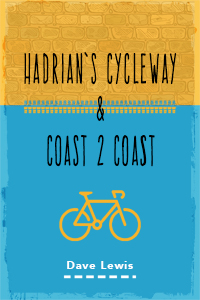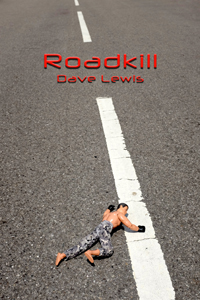Local Heroes
We all know Ponty has many heroes but in 2004 the web site 100 Welsh Heroes did an online poll to find the greatest Welsh men and women. With only 80,000 nominations and votes it could hardly be called truly representative but as a bit of fun it was great. Although the great Alfred Russel Wallace amazingly didn’t win, among those listed were a few famous Ponty people. Although why Mark Davies wasn’t in there we’ll never know? Here’s a bit of a round-up from Ponty and the valleys… but feel free to tell us if we’ve missed anyone out.
Richard Parks
In our opinion Ponty born Richard Parks has achieved more than any other individual associated with the town. The former Pontypridd RFC and Wales rugby player became the first person to conquer the highest peaks on each of the world’s seven continents and stand on all three poles within seven months. A truly remarkable achievement and one which see him elevated to sainthood as far as we are concerned!
Weblink: Richard Parks | Beyond the Horizon
Neil Jenkins
Ponty, Wales & Lions hero – what a guy! One of the true giants of Welsh rugby, Neil Jenkins became the international scene’s record points scorer despite playing during Wales’s wilderness years. Affectionately labelled GM (for Ginger Monster, Maestro or Magician), he is Wales’s record points scorer and is third in the world for points scored in internationals, with 1,049 points for Wales and a further 41 in four tests for the British Lions. And let’s not forget Andrew (brother-in-law) complete with ginger wig and plastic ears, kicking an inflatable sheep over the crossbar – how famous can you get?!
Sir Tom Jones
In 1964 the BBC declared that he was ‘too hot to handle’ and banned him from the airwaves but that soon changed when he released ‘It’s Not Unusual’ and the song became an international hit. Estimated to be worth in excess of £150 million Tom says he loves his hometown but has never given anything back to it.
Weblinks: Tom Jones Official web site
Chris Slade
He has worked with Gary Numan, Tom Jones, Olivia Newton-John (as co-members of the band Tomorrow), and Uriah Heep. He was a member of Manfred Mann’s Earth Band from 1972 to 1978. In the early 1980s, Slade played with Paul Rodgers and Jimmy Page in The Firm. He has played with Pink Floyd’s David Gilmour. Slade probably received his highest exposure in 1989 when he was asked to join the Australian hard rock group AC/DC after their then-drummer Simon Wright had departed. The Young brothers (Angus and Malcolm) initially hired Slade only temporarily, then asked him during the recording of the only album he made with them, to join the band. Slade played on the 1990 Razor’s Edge album and accompanying world tour and the ‘Big Gun’ single released in 1993. The Young brothers, however, asked Slade to leave after four years with the group and reinstated former drummer Phil Rudd, saying that Rudd had demonstrated a ‘groove’ more fitting their style of rock. After his departure, Slade spent a few years living in the UK countryside before receiving a call from Geoff Downes from the British progressive rock group Asia. Slade was with Asia for six years before departing in September 2005.
Weblink: Chris Slade
Phil Campbell
In the world of contemporary music, and specifically the sub-genre of ‘heavy metal’, Phil Campbell is the perfect hero – a virtuoso of the lead guitar. The Treforest-born Motorhead guitarist needs little introduction and made the ‘Heroes’ list at No 20.
Weblinks: Motorhead | BBC Wales
John Evans
Radical writer and filmmaker who has documented the post-industrial south Wales Valleys. Books include: How Real is My Valley, Industria, G.B.H., Giants, The Acid Real and The Red Kite in Wales. John recently set up the charity ‘Save the Badger‘ to campaign against badger culling in Wales. He also teaches creative writing locally and is a regular judge of the Welsh Poetry Competition.
Weblinks: Official John Evans web site
Sir Geraint Evans
Cilfynydd born opera star. Sir Geraint was a bass-baritone and became the world’s most foremost interpreter of Verdi’s fat knight, Sir John Falstaff. He was also the proud recipient of the title Commander of the British Empire.
Stuart Burrows OBE
We have to say that we find it absolutely crazy that the Cilfynydd born singer and one of the greatest tenors that ever lived wasn’t included in the WH list. Here’s a link for you to learn more:
Weblink: Official site
Dr William Price
OK, so he was from Rudry but it’s close enough. Anyway he spent a lot of his time on Ponty Common hanging around by the Rocking Stones and when he wasn’t burning his dead son (Jesus Christ) he used to walk around in the nude and eat berries – we want him back!
Weblinks: BBC Wales
Simon Weston OBE
Nelson boy made good. In 1978 he joined the Welsh Guards and before forming part of the Falklands Task Force, saw active service in Berlin, Northern Ireland and Kenya. In 1982, Simon was aboard the Sir Galahad when it was bombed by Argentine planes. The burns he suffered on that day have required a series of operations, which continue to this day. Despite these injuries and the physical and mental suffering they have caused, Simon’s life is an example of great personal triumph and courage.
Merlyn Rees
Another famous Cil boy was Merlyn Rees who was a Labour MP from 1963-1992. He also became a life peer and entered the House of Lords. He was Secretary of State for Northern Ireland from March 1974 until September 1976, when he moved back to London to become Home Secretary. Rees wrote of his views on Northern Ireland in: Northern Ireland: a personal perspective (Methuen, London, 1985). He was also president of the Video Standards Council and Chancellor of the University of Glamorgan. His name is also cockney rhyming slang for ‘Piece’ meaning lunch.
Freddie Welsh
Born on March 5, 1886 in Pontypridd he was nicknamed the ‘Welsh Wizard’ (an epithet shared by his contemporary, David Lloyd George). The son of a successful businessman, Freddie suffered frequent illnesses as a child and was sent to California for his health. Here he took up boxing as a result of a suggestion from his physical fitness instructor. He became so good at the sport that he decided to make a living out of it and he turned professional in 1905. He took the name Freddie Welsh to prevent his mother from learning of his new career. The surname ‘Welsh’ taken as a honour to his nationality. In 1914, Welsh won the World Lightweight title in London.
During the first world war Freddie served as a lieutenant and helped disabled veterans at the Walter Reed Hospital. He was discharged a captain and returned to the ring in December, 1920. He retired from boxing after a defeat by Archie Walker in 1922, but retired as a wealthy man. He bought a health farm and a gymnasium but fell on hard times and died penniless in New York. During his career he won 120 fights, lost 27, drew 16 and achieved 30 knockouts. Freddie Welsh was inducted into the ‘Boxing Hall of Fame’ in 1960 and the ‘International Boxing Hall of Fame’ in 1997.
Sgt. Robert Bye, V.C.
Robert James Bye was born on December 12, 1889 at 13 Maritime Street, Graig, Pontypridd, Wales. His parents Martin and Sarah Jane Bye then moved to 21 Woodfield Street, Penrhiwceiber, and Robert was educated at the local school there. After leaving school he worked at The Deep Dyffryn Colliery, Mountain Ash, before joining the Welsh Guards on April 3, 1915. Advancement through the ranks was rapid when he was promoted to Lance-Corporal in March 1916, Corporal in September of that year and then to Sergeant in April 1917. He served in France and Flanders and was discharged in February 1919. Six months later he re-enlisted in the Notts and Derby Regiment, remaining with it until 1925, and finally re-enlisting again in the Sherwood Foresters in World War Two. After the war he worked at Warsop Main, Firbeck and Welbeck Collieries in the Nottingham coalfield and also became a temporary police constable at Mansfield, Notts. He married a Welsh girl from Penrhiwceiber, Mabel Lloyd, at Pontypridd on October 14, 1912 and they had two sons and two daughters. He died in 1962, aged 72 and is buried at Warsop Cemetery, Nottingham.
Sgt. Bye won his VC on 31 July 1917 at the Yser Canal, Belgium, where he displayed the utmost courage and devotion to duty during an attack on the enemy’s position. During the attack, at the third Battle of Ypres, Sgt. Bye saw that the leading waves were being troubled by two enemy blockhouses. He rushed at one of them and put the German garrison out of action. He then rejoined his company and went forward to the second objective. Later he volunteered to take charge of a party detailed to clear up a line of blockhouses which had been passed. He accomplished this, taking many prisoners, and then advanced to the third objective, again taking a number of prisoners. During the action he accounted for over 70 of the enemy. His actions in Woods 15 and 16 and at the Yser Canal on the same day were also taken into account. Sgt. Bye’s citation appeared in the London Gazette on September 6, 1917 and he was invested with his VC by King George V on September 27, 1917.
Frank Moody
Known as the ‘Pontypridd Puncher’, the former miner, who lived from 1900-63, is known to have fought 203 times, winning 127 (69 by knock-out), losing 54 and drawing 15. The record includes 52 bouts in North America (32 wins, nine draws), with victories over Hall-of-Famers Lou Bogash and Kid Norfolk and a showdown with middleweight king Harry Greb. Moody was the most successful of seven fighting brothers from Pontypridd and started working in the collieries at the age of 11. His first known boxing match was at the age of 13 and he learnt his trade with fights throughout England and Wales.
Weblink: BBC Wales
James Spickett – Founder of Ponty RFC
James Edward Spickett was born in Pontypridd in 1859 and was the eldest of two sons born to Edward Colnett Spickett who moved to the district of Ystradfodwg in the early 1860s, where he became the first Registrar of Pontypridd, a post that James Spickett inherited on his fathers death in 1899. James left school and worked for his fathers firm, Spickett & Co Solicitors in Courthouse Street. It was at this time that he decided to form a ‘football’ team, and arranged an inaugural meeting of this team around 1878 at The Butchers Arms Hotel in the middle of town, and at the age of seventeen became the first captain of a club named after the town ‘Pontypridd’. Today, that first Pontypridd RFC team would probably pass as a youth or schoolboys team, as its players were only 16 or 17 years of age. James’s playing career was not long, however he and his brother did appear for the South Wales Football Club in representative matches, an early runner of provincial rugby!
Teddy Lewis
Mr. Tom Edward (Teddy) Lewis, grew up to be the ‘Mr. Sportsman’ of the town and was influential in the Pontypridd Rugby Club, either as an advisor or an officer, and was president of the club in seasons 1911-12, 12-13, 13-14, and patron 1919-20 & 20-21. Teddy was also Vice-president of the Welsh Rugby Union for ten years. He held the position of secretary of the Glamorgan Rugby League for twenty years, and was president of the Pontypridd Cricket Club. Teddy Lewis also held vice-presidencies of the Pontypridd Swimming Club, Pontypridd Kennel Club, and the Welsh Amateur Boxing Association, and was a generous supporter of the Glamorgan County Cricket Club. When Taff Vale Park came up for sale in 1900, Teddy became the secretary of the Athletic Syndicate that bought the Taff Vale part from James Roberts. However, it is in connection with the Welsh Powderhall Sprint that everyone, even today, remember his name with affection. It was he who probably suggested a Welsh Powderhall Sprint, and he fired the starting pistol at every Powderhall for the 27 years of its promotion. He was the official starter for the South Wales Athletics Board, and no important sports meeting was complete without Ted and his famous starting pistols which would often startle unwary people with their loud bang. In all, Teddy used four pistols, three of which were mid 19th century muzzle loading, using black powder and pad, fired by a percussion cap, while the fourth was a late 19th century sporting pistol, possibly of European manufacture. Boxing was also one of his great loves. He took on a young boxer named Jimmy Wilde, who under Teddy Lewis’s guidance would become a boxing legend, and was soon seven-stone champion of Wales, British Champion, and World champion. One national newspaper wrote at the time of his death at 70 in 1833: – “Wherever sportsmen gathered this week expressions of regret at the death of Teddy Lewis, Pontypridd, have been heard. He was more than a sportsman to them; he was a ‘character’ as outstanding as could possibly be imagined.”









Can you tell me why the person below is not on the list of war dead in Pontypridd?
Name: THOMAS
First name: PENRY LLEWELYN
Country: United Kingdom
Ranque: Sergeant (Obs.)
Regiment/ ServiceL: Royal Air Force
Unit: 57 Sqdn.
Age: 27
Killed:10/05/1940
Service nt.: 5639
Cemetery: BUURMALSEN GENERAL CEMETERY IN THE NETHERLANDS
Penry was born in Pontypridd, Wales, in 1913. He was the son of miner Brynley “Brin” Adolphus Thomas and Minnie Evans. Penry married in 1939 in Salisbury, Wiltshire, with Doris Florence Hill from Boscombe East, Bournemouth, Hampshire.
For me he’s a hero, because he gave his life so we can enjoy our freedom.
Now I’m trying to find information on the crash from Mai 10 1940 of a Blenheim IV from 57th Sqdn near Echteld in The Netherlands. There were three men on board of which Penry Thomas was killed directly and the other two died later in a hospital near Hoek of Holland. You can find the story in Dutch on my website: http://www.oorlogsslachtofferswestbetuwe.nl/crash-buurmalsen–zoelen.html
Does anyone know his next of kin? They can contact me: r.velde@hetnet.nl
Thanks for your help!
Hi
You’ll have to ask the local council that one I’m afraid. Thanks for posting 🙂
http://www.rctcbc.gov.uk